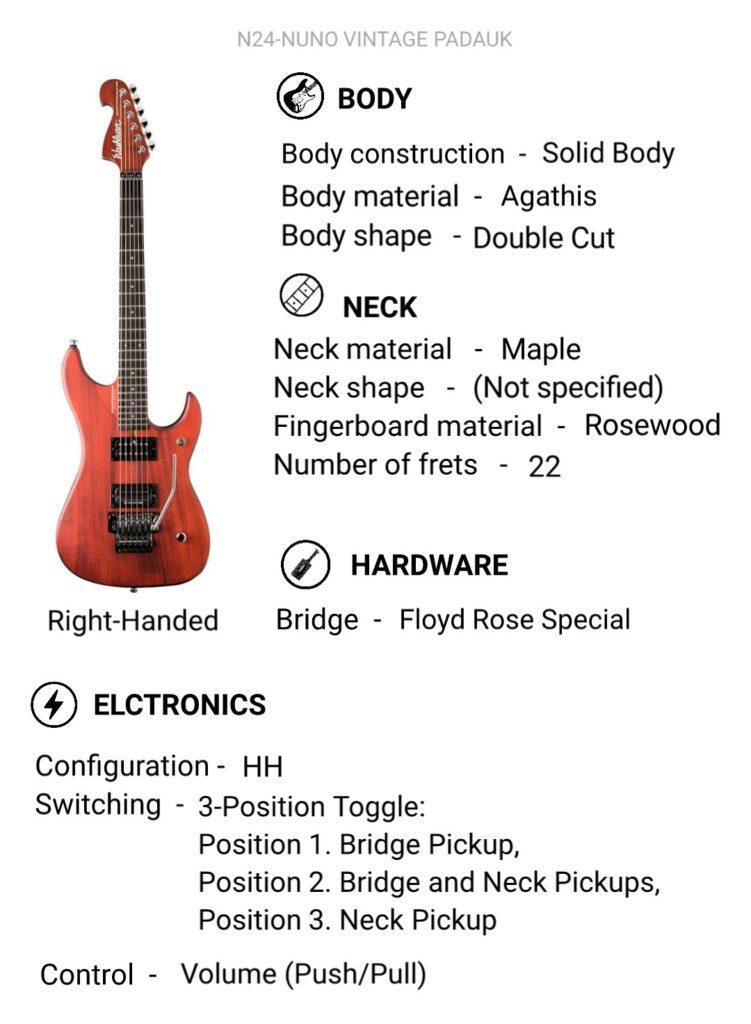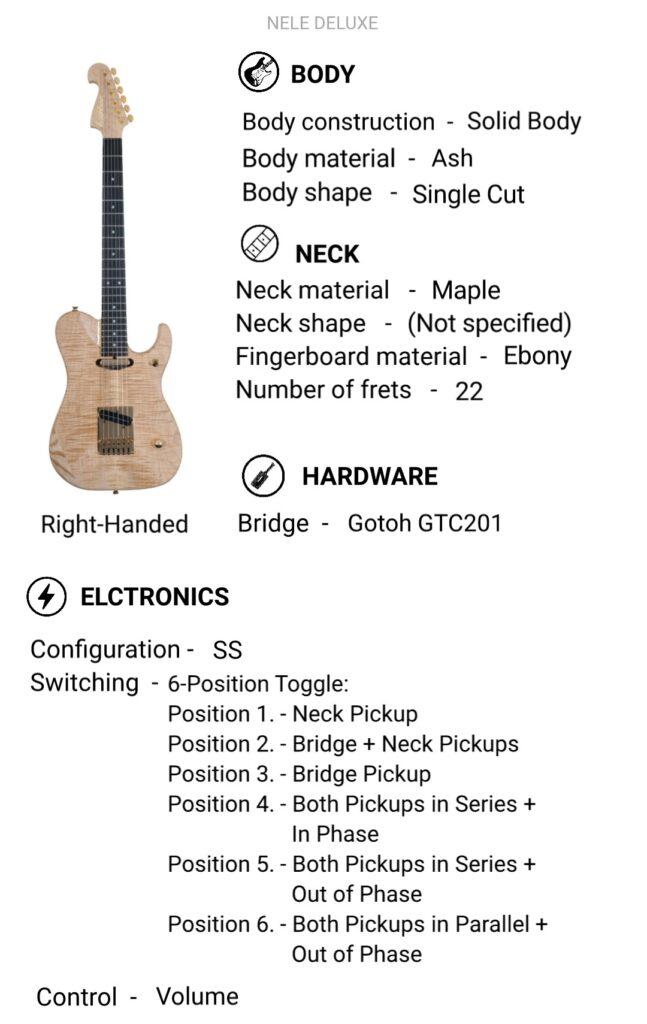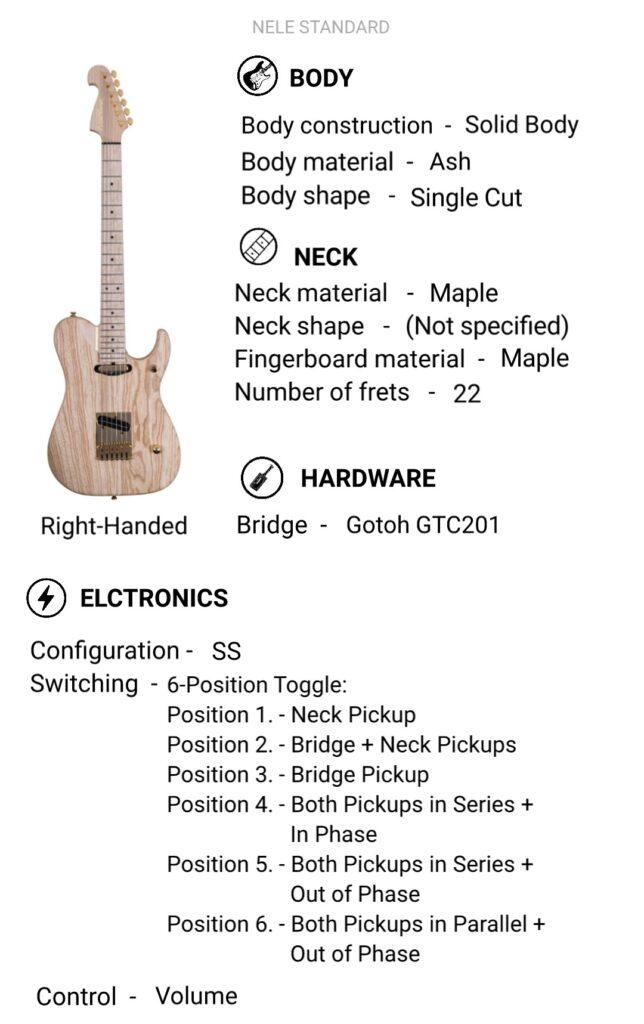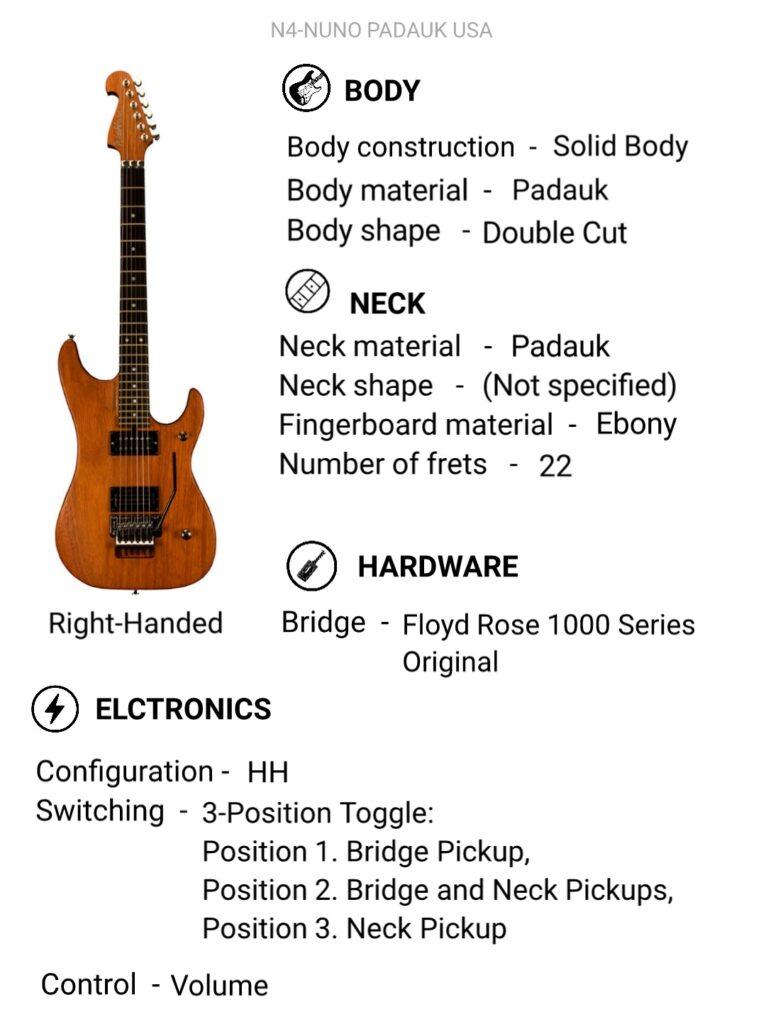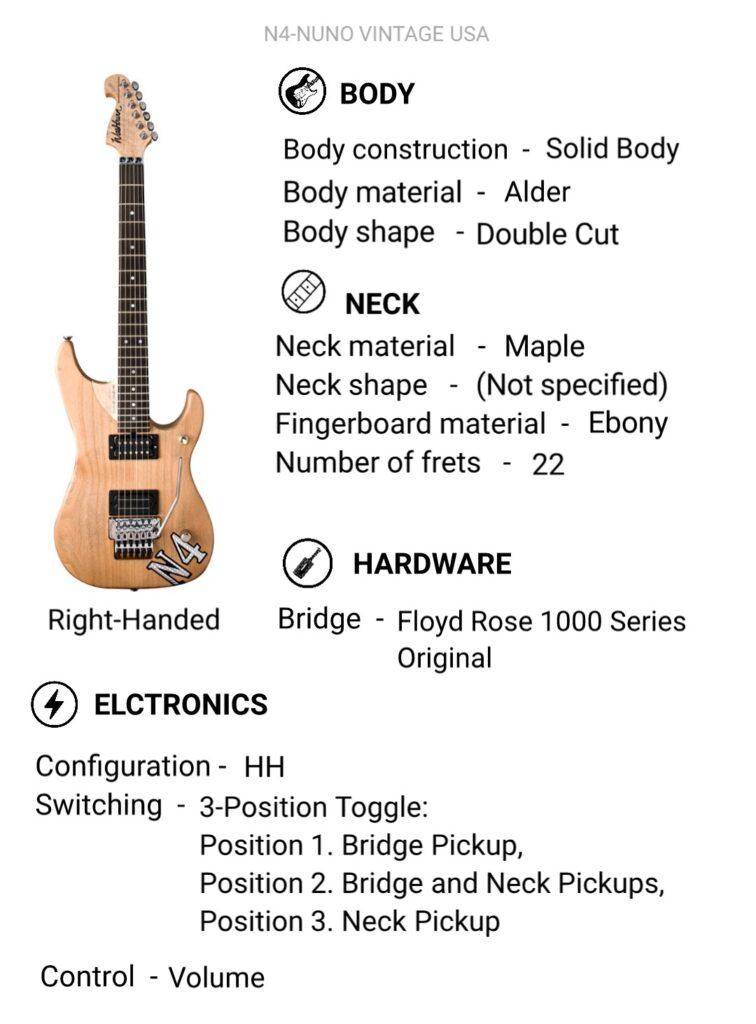list of all Washburn electric guitars with prices, specifications and features from difference online
stores at infinicisum.net
Introduction: Washburn has been a prominent name in the world of guitar craftsmanship since its inception in the late 19th century. Over the years, the company has carved a niche for itself, offering a diverse range of instruments, including acoustic and electric guitars. In this article, we’ll delve into the realm of Washburn electric guitars, focusing on two distinctive series: the Nuno Bettencourt Series and the Sonamaster Series.
”Read_More”
Nuno Bettencourt Series: Shaping Tones with Precision
The Nuno Bettencourt Series by Washburn stands as a testament to the collaboration between Washburn and the virtuoso guitarist Nuno Bettencourt. Known for his work with Extreme and other musical endeavors, Bettencourt’s signature Washburn models embody his unique playing style and sonic preferences.
Key Features:
- Innovative Design: Nuno Bettencourt’s Washburn guitars often feature innovative designs, setting them apart in terms of aesthetics and functionality.
- Versatile Tonal Palette: These guitars are crafted to provide a versatile tonal palette, allowing players to explore a wide range of sounds suitable for various genres.
- Comfortable Playability: The Nuno Bettencourt Series prioritizes playability, with ergonomic designs and neck profiles that cater to the demands of both seasoned players and enthusiasts.
- Quality Craftsmanship: Washburn’s commitment to quality craftsmanship is evident in the Nuno Bettencourt Series, ensuring that each instrument meets the high standards set by both the artist and the brand.
- Signature Models: The series includes signature models that bear the distinct mark of Nuno Bettencourt’s preferences, making them ideal for guitarists who admire his unique approach to playing.
Sonamaster Series: Affordable Excellence for Aspiring Players
The Sonamaster Series by Washburn is crafted with the aspiring musician in mind. These guitars offer a blend of affordability and quality, making them accessible to players at various skill levels.
Key Features:
- Entry-Level Affordability: The Sonamaster Series is designed to be budget-friendly, providing a gateway for beginners to enter the world of Washburn electric guitars without compromising on quality.
- Diverse Models: This series encompasses a diverse range of models, catering to different preferences in terms of body shapes, finishes, and features.
- User-Friendly Playability: Washburn ensures that the Sonamaster guitars are user-friendly, with comfortable necks and setups that encourage a positive playing experience for those embarking on their musical journey.
- Dependable Build Quality: Despite the affordability, Washburn maintains a level of build quality that instills confidence in the durability and longevity of Sonamaster guitars.
- Ideal for Practice and Performance: Sonamaster guitars are well-suited for practice sessions, jamming with friends, and even live performances, providing reliable instruments for players on a budget.
Washburn’s Enduring Legacy
As we explore the Nuno Bettencourt Series and the Sonamaster Series, it becomes evident that Washburn electric guitars embody a commitment to craftsmanship, innovation, and inclusivity. Whether you’re a seasoned professional seeking the nuances of a signature model or a beginner venturing into the world of electric guitars, Washburn has a diverse lineup that caters to a wide spectrum of players. The Nuno Bettencourt Series and the Sonamaster Series stand as exemplars of Washburn’s dedication to providing quality instruments for musicians at every stage of their musical journey.
How to choose right Washburn electric Guitar
Choosing the right Washburn electric guitar involves considering various factors to ensure that the instrument aligns with your preferences, playing style, and budget. Here’s a guide to help you make an informed decision:
1. Define Your Playing Style:
- Different Washburn models cater to various genres and playing styles. Consider the type of music you want to play, whether it’s rock, metal, blues, or jazz. Some Washburn guitars are specifically designed for shredding, while others excel in producing warm, bluesy tones.
2. Body Shape and Design:
- Washburn offers guitars in diverse body shapes, including classic designs and modern contours. Choose a body shape that not only appeals to your visual preferences but also complements your comfort and playing style. Consider factors like weight, balance, and access to higher frets.
3. Pickups and Electronics:
- Pickups significantly influence the guitar’s sound. Washburn guitars come equipped with various pickup configurations, such as humbuckers, single-coils, or a combination of both. Determine the tonal characteristics you desire and choose a guitar with suitable pickups. Additionally, consider guitars with versatile electronics for tone shaping.
4. Neck Profile and Scale Length:
- The neck profile and scale length impact playability. Choose a neck profile that feels comfortable in your hands, whether it’s a slim, fast neck for shredding or a chunkier neck for a vintage feel. Scale length affects string tension and can influence the overall feel of the guitar.
5. Quality of Construction:
- Assess the overall build quality of the guitar. Check for sturdy construction, well-set neck joints, and smooth fretwork. A well-constructed guitar contributes to better sustain, tuning stability, and overall durability.
6. Budget Considerations:
- Determine your budget range before exploring Washburn guitars. Washburn offers guitars across a wide price spectrum, from affordable entry-level models to high-end professional instruments. Knowing your budget will help narrow down your options.
7. Try Before You Buy:
- Whenever possible, try out different Washburn models in a music store. Pay attention to how the guitar feels in your hands, the balance, and the ease of reaching higher frets. Playability is subjective, and trying the guitar in person provides valuable insights.
8. Research Reviews and Demos:
- Read reviews and watch video demonstrations of Washburn guitars that interest you. Reviews from other players can offer insights into the guitar’s strengths and potential drawbacks. Demos allow you to hear how the guitar sounds in various playing scenarios.
9. Consider Used Options:
- If your budget is tight, explore the used market for Washburn guitars. Many high-quality instruments can be found at a lower price, and buying used allows you to potentially access a model that might be out of reach brand new.
10. Warranty and After-Sales Support:
- Check the warranty offered by Washburn and the availability of after-sales support. Knowing that your purchase is backed by a reliable warranty and customer support can provide peace of mind.
By considering these factors, you can narrow down your options and find the Washburn electric guitar that best suits your preferences and musical aspirations. Whether you’re a beginner or an experienced player, Washburn’s diverse lineup offers something for everyone.
Pros and Cons of Washburn electric Guitars
Washburn electric guitars have earned a reputation for their craftsmanship, diverse models, and value for money. However, like any brand, they come with their own set of advantages and disadvantages. Here’s an overview of the pros and cons of Washburn electric guitars:
Pros:
1. Diverse Model Range:
- Washburn offers a wide variety of electric guitar models, catering to different playing styles and genres. From classic designs to modern innovations, there’s a Washburn for almost every guitarist.
2. Affordability:
- Washburn provides guitars across a range of price points, making them accessible to players with varying budgets. The Sonamaster Series, in particular, offers affordable options for beginners.
3. Quality Craftsmanship:
- Many Washburn guitars exhibit quality craftsmanship, especially in mid-range and higher-end models. Well-constructed instruments contribute to better playability, durability, and overall satisfaction.
4. Innovative Designs:
- Washburn has produced guitars with innovative designs, such as the Nuno Bettencourt Series, showcasing the brand’s commitment to pushing the boundaries of guitar aesthetics and functionality.
5. Signature Artist Models:
- Washburn collaborates with renowned artists, resulting in signature models that capture the essence of the artists’ playing styles. These guitars often provide unique features and specifications.
6. Good Tonewood Selection:
- Washburn uses a variety of tonewoods in its guitars, allowing players to find instruments with tonal characteristics that suit their preferences. This variety contributes to the versatility of Washburn guitars.
7. Playability:
- Many Washburn guitars are designed for comfortable playability. Factors such as neck profiles, fretwork, and overall ergonomics are considered to enhance the playing experience.
8. Versatile Electronics:
- Washburn guitars often come equipped with versatile electronics, allowing players to shape their tone effectively. This is especially notable in models designed for a broad range of musical genres.
Cons:
1. Inconsistency in Quality:
- While Washburn is known for quality craftsmanship, some users have reported inconsistencies in quality control, particularly in lower-priced models. It’s essential to play or inspect the specific guitar you intend to purchase.
2. Limited High-End Options:
- Washburn’s high-end electric guitar offerings might be perceived as limited compared to some other brands. Players seeking ultra-premium, custom-shop options may find fewer choices within the Washburn lineup.
3. Resale Value:
- Washburn guitars may not retain resale value as well as some other brands, especially in the entry-level and mid-range segments. This can be a consideration for those who plan to upgrade or sell their guitars in the future.
4. Availability of Models:
- Depending on your location, the availability of specific Washburn models may vary. Some unique or limited-edition models might be harder to find in certain regions.
5. Customization Options:
- Washburn might offer fewer customization options compared to certain boutique brands. Players seeking highly customizable, made-to-order guitars might need to explore other brands.
6. Synth Access Limited to Specific Models:
- While Washburn has offered guitars with synth access technology, this feature is not available across all models. Players interested in this capability may need to explore specific series or models.
In summary, Washburn electric guitars present a compelling option for a broad range of players, offering diversity, affordability, and quality craftsmanship. Like any guitar purchase, it’s advisable to thoroughly research and, if possible, play the specific model you’re interested in to ensure it meets your expectations and preferences.
History of Washburn electric Guitars
Washburn has a rich history that dates back to the late 19th century, making it one of the oldest guitar manufacturers in the United States. The story of Washburn electric guitars is intertwined with the brand’s evolution from its acoustic roots to embracing the electrified sound of modern music.
Late 19th Century: The Birth of Washburn
- 1864: The history of Washburn guitars begins with the formation of the George Washburn Lyon Company in Chicago. It was founded by George Washburn Lyon and Patrick J. Healy.
- 1883: The Lyon & Healy Company acquired the brand and began using the Washburn name on a wide range of instruments, including guitars, mandolins, and banjos.
Early to Mid-20th Century: Expansion and Innovations
- 1930s-1940s: Washburn continued to expand its catalog with acoustic guitars and other stringed instruments.
- 1960s: Washburn, like many other guitar manufacturers, adapted to the changing musical landscape of the 1960s with the rise of rock ‘n’ roll and the electric guitar. The company introduced electric guitars alongside its acoustic offerings.
1970s-1980s: Transition to New Ownership
- 1977: The company faced financial challenges, and the rights to the Washburn name were acquired by a new group of owners led by Rudy Schlacher.
- 1980s: Washburn underwent a revitalization under the new ownership, focusing on modernizing its guitar designs and entering the electric guitar market more prominently.
Nuno Bettencourt Collaboration: Innovations in the Late 1980s
- Late 1980s: One of the pivotal moments in Washburn’s history was the collaboration with guitarist Nuno Bettencourt, known for his work with the band Extreme. The Nuno Bettencourt signature models, like the N4, showcased innovative designs and contributed to Washburn’s presence in the rock and metal scene.
1990s-2000s: Expanding the Electric Guitar Lineup
- 1990s: Washburn continued to expand its electric guitar lineup, offering a diverse range of models catering to various musical genres.
- Early 2000s: The introduction of the WI and WI66PRO models highlighted Washburn’s commitment to providing quality instruments at different price points.
Recent Years: Continuing Innovation
- 2010s-Present: Washburn has continued to innovate, introducing new models and series, including signature artist models, affordable entry-level guitars, and modern designs that appeal to contemporary players.
Washburn Electric Guitars Today: Diverse Offerings
- Today, Washburn’s electric guitar lineup spans various series, including signature artist models, the Nuno Bettencourt Series, and the Sonamaster Series, offering a wide range of options for players of all levels.
Washburn’s journey in the world of electric guitars reflects its ability to adapt to changing musical landscapes while maintaining a commitment to quality and innovation. The brand’s diverse lineup continues to attract players from different genres, solidifying Washburn’s place in the ever-evolving world of electric guitars.
”Read_Less”

